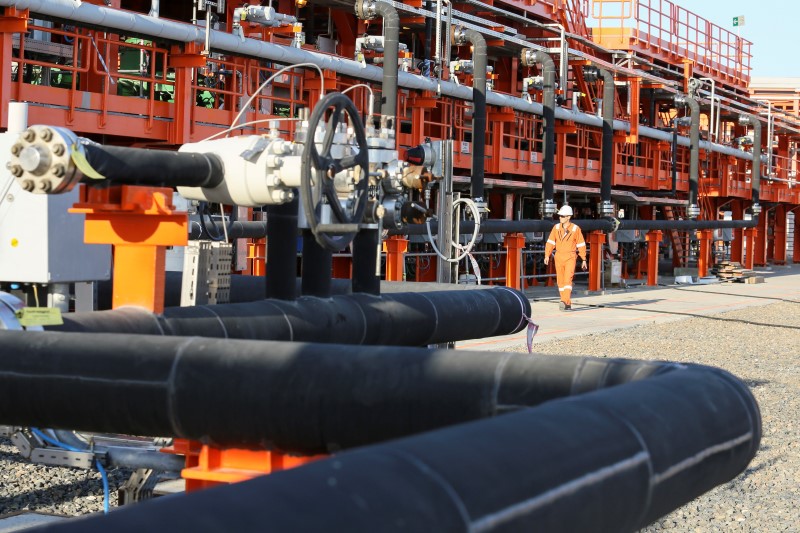Investing.com - Crude oil prices gained in Asia on Wednesday ahead of industry estimates of U.S. inventories as refineries in Texas recover from hurricane-related shutdowns.
On the New York Mercantile Exchange crude futures for November delivery rose 0.27% to $51.06 a barrel, while on London's Intercontinental Exchange, Brent gained 0.11% to $56.67 a barrel.
Later Wednesday, the American Petroleum Institute (API) is to release its estimates of crude and refined product inventories at the end of last week, followed by official data on Thursday from the Energy Information Administration (EIA). The API and EIA figures often diverge.
Crude oil inventories are seen down by 1.8 million barrels, while distillates are seen down by 2.375 million barrels and gasoline stocks expected to show a 1.025 million barrels decline.
Overnight, crude oil prices settled sharply higher on Tuesday after de facto Opec leader Saudi Arabia vowed to reduce monthly crude exports amid expectations that market rebalancing is underway.
Crude oil prices had their best day in two weeks as sentiment turned positive after Saudi Arabia pledged to cut its November crude oil exports by 7% or 560,000 barrels a day, compared with the same period last year in order to strengthen the market rebalancing process.
The gap between supply and demand in oil markets is expected to narrow further in the coming months amid a surge in global demand growth which has lifted oil prices above $50 a barrel.
“The strongest global demand growth we have seen in at least the last two years, if not longer, gets some of the credit it appears that [the Organization of the Petroleum Exporting Countries] sees the glut of oil almost gone,” said Phil Flynn, senior market analyst at Price Futures Group.
The uptick in crude oil prices, however, fuelled fears of an increase in shale oil production which becomes profitable at about $50 per barrel.
OPEC’s Secretary-General Mohammed Barkindo on Tuesday sought to allay investor fears, calling on U.S. shale producers to take responsibility and help cut global excess supplies in the oil market.
“We urge our friends in the shale basins of North America to take this shared responsibility with all the seriousness it deserves, as one of the key lessons learned from the current, unique supply-driven cycle,” Barkindo said.
Barkindo’s comments come ahead of a monthly Opec report due Wednesday.
